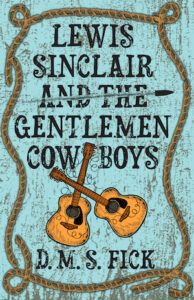
Why Teenagers Need Their Own Library Space
My son is not as voracious of a reader as I am. For multiple reasons, including recent pushback against the term, I’m hesitant to say he’s a Reluctant Reader. Rather, he’s just extremely selective about what he reads. And he rarely does it unprompted.
So, imagine my joy when I mentioned having to go to the library to drop off a book and he responded, “We haven’t been to a library in a long time.” Noticing the use of the plural but also wanting to make a big deal out of it, I asked casually, “Would you like to go with me to drop it off? Maybe get a book of your own?” He was quiet and then said, “Well, I’m a teenager now so maybe?”
On the surface, that may not seem to be related to my question. But, knowing how his brain works, I immediately knew that he was remembering the really awesome teenage space that the Pflugerville Public Library has.
When he was younger, he would always want to go into that space. But since he wasn’t “officially” a teenager at yet, I always told him he had to wait until he was. As with a lot of things, he locked this piece of information away until it was applicable to him. So, he was more than ready to finally go in there and see what it was all about. And the joy I saw on his face warmed my heart. It also gave me hope that maybe it’s not too late for him to embrace reading.
Let me pause real quick and state that there is a difference between “sections” and “spaces”. Yes, there have always been sections in public libraries for books geared towards younger readers. However, teenage spaces weren’t really around in the early 2000s — despite the fact that the first officially recognized library teenage space was established in 1994.
Sure, there were likely other exceptions here and there across the country, but they were few and far between. Still, I asked fellow Rioters about their experiences with teenage spaces in libraries. When I did, Jessica Pryde mentioned that, back in the late nineties/early aughts, she used to go to the main DPCL branch purely because of the designated space for teenagers. But even that would be considered an outlier.
This change is likely due to this also being the period of time when the YA genre became more popular. And librarians, being the awesome humans they are, picked up on this. So, the campaign to make these spaces for their younger readers started to grow. They knew that if you build this love of reading at a young age, it will keep on through adulthood. And that is true. But there’s more to it.
Let’s be real: this world is not tailored for anyone under 18. While we tell teenagers they’re not adults, we expect them to fit into adult spaces. There are almost no spaces for teenagers to be their authentic selves. Having this set place for them in public spaces, such as a library, is important. It gives them a sense of belonging as well as a place where they can just chill.
Everyone, regardless of their age, needs a safe space. After school and recreational centers are not as common as they once were. So the only thing really left for teenagers are the library spaces that are established for them. It’s not just a place for reading; it’s a place for them to just be.
When you have a space you feel safe in, you realize that you do matter and feel comfortable speaking up. When you feel comfortable speaking up, you will use your voice more and realize how powerful and important it is. And when you realize all of that? Nothing can take that away from you and you will carry the rest of your life.
Maybe I’m reading too much into this. You could be rolling your eyes at me. But, speaking as someone who didn’t have that type of space growing up and who just recently how powerful her voice could be, I’m a bit jealous. If I had something like that at that age, I would be completely unstoppable. These spaces are contributing to the younger generation realizing how important they are. And they are doing it long before their elder counterparts did.
The younger generation is unstoppable and they take no guff. The recent walk-outs due to unnecessary book bannings and the protests in Tennessee are just a few of examples of this. They have shown that they do not want to inherit this world as it is. And they do not and will not hesitate to use their voice or actions to work towards making a better one.
I don’t think it is unwarranted to think that the establishment of spaces like this helped to plant the seeds for the revolutionary way they will change the world. Here’s hoping that this trend continues for the current and future generations to come.











